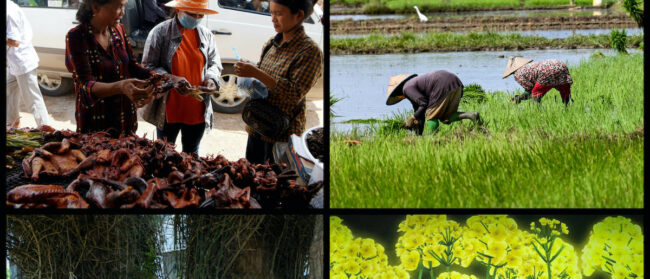Hello Globe readers,
This week we lead with two articles about life on Cambodia’s Tonle Sap Lake with reporting from Fiona Kelliher and Chea Sameang and striking images by photographer Nigel Dickinson.
The first essay explored the increasingly uncertain futures of youth in Cambodia’s floating villages, which have long relied on fishing for their livelihood. Amidst climate change, hydropower dams and overfishing, Tonle Sap communities are unable to make a living from the bounty of the lake. The region’s young people are torn between pursuing new professions, migrating for a better livelihood or sticking with an increasingly bleak fishing tradition. The second piece examined crackdowns by authorities on illegal fishing and the devastating consequences for the lake’s impoverished communities, including many stateless Vietnamese.
On the mainland, a large number of Cambodians work in agriculture but have been unsuccessful in accessing regional and international markets, Jack Brook reported. It’s an open secret that many of the fruits and vegetables found in Cambodian markets are grown in Thailand or Vietnam. But there are ways for Cambodia to improve the agricultural sector’s competitiveness, including differentiating its products and implementing more farming cooperatives.
Historian Ang Cheng Guan offered Globe readers an article revisiting a Singaporean diplomatic faux pas from 2019. Singapore’s prime minister sparked outrage from Cambodian and Vietnamese leaders by suggesting Vietnam had invaded Cambodian territory controlled by the Khmer Rouge in 1978. The infamous “condolence letter” highlighted tightly held state narratives and the differences in regional interpretation of a key moment in Southeast Asia’s history.
Contributor Mark S. Cogan warned that the soft-power sugar high Thailand enjoyed following the sight of Thai teen rapper Milli indulging in one of the nation’s beloved mango rice desserts during her performance at an American music festival will ultimately be drowned out by the government’s repressive action. Flexing hard power at home to dampen freedom of expression strangles creativity and undermines ambitions of cultural influence abroad, he argued.
Finally, if you like what you see at Globe and you or someone you know is interested in joining our staff of journalists, we have an opening for a reporter based in Thailand. The job description provides details including how to get in touch. We also offer a six-month internship for early career journalists who want to garner experience and education in one of the world’s most vibrant news regions.
As always, thanks for reading.


